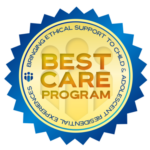The teen years are emotionally challenging, characterized by various physical, mental and social changes that may transform your formerly happy, active son into a person you no longer recognize at times. Withdrawal, sullenness and unpredictable mood swings are all characteristics of adolescence, but they are also qualities of mental illnesses.
According to the American College of Obstetricians and Gynecologists, at least one in five kids between 9 to 17 years old has a diagnosable mental health disorder that causes some degree of disability. As a parent or guardian of a teenage boy, how can you learn to recognize what separates typical teen angst from a legitimate mental illness?
What Constitutes a Mental Health Disorder?
Everyone gets moody at times, especially teenage boys. However, when determining whether their patient has a mental health disorder, a physician will generally start by asking about whether there is any lack of interest in formerly enjoyable or engaging activities. In teens, these signs might show up as poor academic or athletic performance, uncharacteristic irritability or an unwillingness to participate in social situations.
Additional red flags of typical mental health disorders among teen boys may include the following.
- Anxiety: Excessive or irrational worry about daily life
- Depression: Unshakeable feelings of sadness, hopelessness or emptiness
- Trauma: Guilt, shame, disconnectedness and feelings of being on edge
If you suspect your teen son has developed a mental health issue, don’t dismiss it as merely a passing phase or something he will soon outgrow. These are legitimate health concerns that can quickly worsen if you ignore them. One of the most significant consequences of untreated mental illnesses is the emergence of a co-occurring substance use disorder.
Co-Occurring Mental Health Issues Among Teenage Boys
While mental health conditions such as anxiety, depression and trauma may not cause substance use disorders, addiction and mental illnesses are closely linked. For example, adolescents who drink or take drugs as a coping strategy to escape the difficult emotions complicating their lives may quickly progress from tolerance to dependence to addiction.
As a substance use disorder worsens, it can also magnify the symptoms of mental illness. And, when both diseases develop in tandem, it can be increasingly challenging to separate one from the other, or tell which came first.
Treating a Co-Occurring Disorder
As individual diseases, addiction and mental illness are not easy to overcome. When taken together, they’re even more difficult. However, if your teenage son has received a diagnosis of a co-occurring disorder, you should never lose hope or assume help is beyond your reach. Treatment is available for your son to reclaim his bright future in life.
At ARCH Academy, we serve adolescent males ages 14 through 17 who have a primary substance abuse problem. We specialize in treating the whole child with 12-step programming, individualized clinical care, family programming and support, academic advancement and adventure therapy. At our 177-acre campus, located just outside Nashville, TN, your son can gain the tools he needs to make a fresh start in life. If addiction and co-occurring mental health disorders are tearing your family apart, please contact us today to learn more about what we offer and how we can help you recover.




